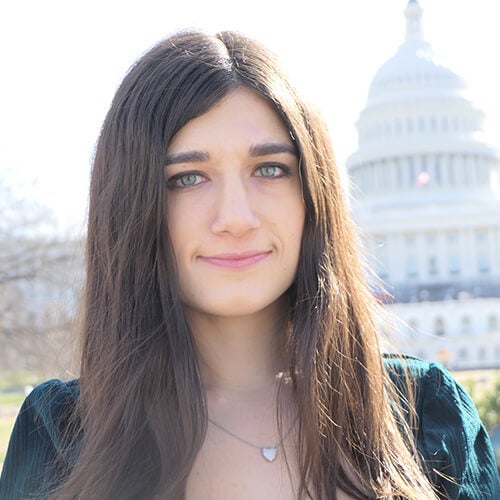By Danielle Mikaelian ’25

Going into law school, I made it a priority to join student organizations that would provide me with hands-on legal experience. I spent my 1L summer working at a big law firm in NYC in order to better prepare for a career in corporate law. I joined Harvard Law’s Entrepreneurship Project (HLEP) because I wanted to gain hands-on experience working with founders as they worked to launch companies. It was exciting to assist startups working to transform their dreams into reality.
After working for a startup, I also wanted to gain experience advising emerging companies and entrepreneurs as well. For the last couple of years, I have been working as a college admissions consultant for a tech enabled education startup. It has been incredibly rewarding to watch the company expand different offerings, onboard more employees, receive funding from investors, and expand its clientele. The Harvard Law Entrepreneurship Project allowed me to build on this past experience, working with startups through a legal lens. HLEP specifically provides law students with the opportunity to work with a wide variety of startups at Harvard and MIT.
As part of Harvard Law’s Entrepreneurship Project (HLEP), I worked with a team of two students and attorneys from Cooley LLP to advise an education startup at Harvard Business School.
I specifically gained experience in advising clients, conducting legal research, drafting legal memorandums, and presenting my findings to a team of attorneys. As someone interested in pursuing a career in corporate law, I enjoyed working with Cooley LLP, a preeminent corporate law firm focused on advising startups and emerging companies. Working with corporate attorneys engaged in pro bono work exposed me to the volunteer projects I can pursue someday as a corporate attorney.
The startup was focused on building an AI enabled financial literacy platform for children. They aspired to offer videos and interactive learning activities to promote economic mobility amongst families from lower income backgrounds. It was rewarding to assist students at Harvard Business School working to ensure individuals could access essential financial knowledge.
At the beginning of the project, we were tasked with determining where the startup should be incorporated and asked to research tax implications of incorporating in different states. However, the client’s legal needs rapidly evolved. Accommodating changing client requests under quick turnaround times helped me learn how to rapidly respond to shifting priorities.
Our team’s final project was focused on determining the copyright limitations of open-source software and the patentability of the startup’s AI technology. We also researched corporate liability law. The startup founders specifically wanted to know whether their idea for an AI enabled education platform was protected against competitors. My particular role was to research the patentability of AI. This was particularly interesting because artificial intelligence is such a novel topic in law that there is less precedent than other areas. I had to extensively research to find relevant cases and enjoyed reading recently litigated cases showing how AI will be treated within the legal field.
Working alongside Cooley LLP attorneys on this project was invaluable. Our team drafted various memorandums with our proposals, receiving detailed feedback and making adjustments as needed. We would meet with the attorneys and discuss any ways to supplement our research while receiving insight into what information a startup would find particularly useful. Receiving constructive comments from corporate attorneys helped me understand how to improve my legal research and tailor information to client needs. It also provided me with hands-on experience meeting tight deadlines for clients, ensuring that the startup met pivotal investor deadlines. I also learned how to manage client expectations, keeping the startup founders informed of our progress and building a foundation of trust.
I highly recommend that students join the Harvard Law Entrepreneurship Project and gain experience working with creators working to launch their own innovations. HLEP helps students build on their skills outside of a classroom environment, ensuring that they are prepared to pursue a variety of different career paths after graduating.
Filed in: Clinical Student Voices
Contact Office of Clinical and Pro Bono Programs
Website:
hls.harvard.edu/clinics
Email:
clinical@law.harvard.edu